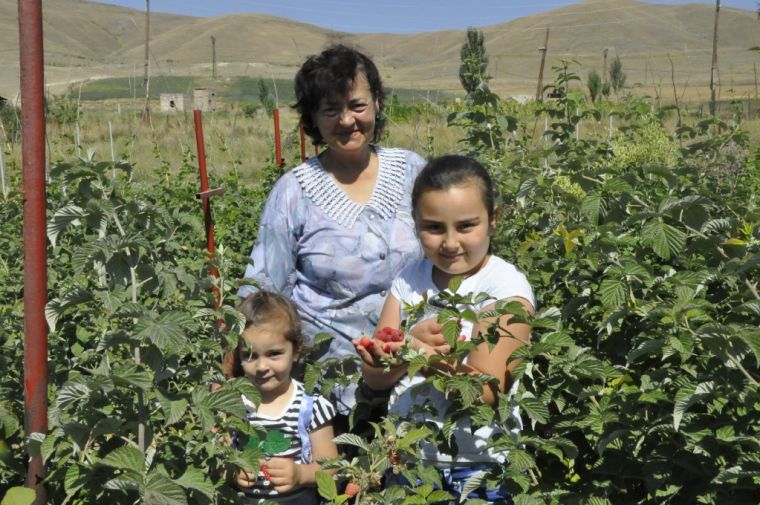We used to be poor. Now we have raspberries
'We are a very happy community. We are actually earning more than a government doctor – we can now easily send our children to school.'
These were the words of a group of women I met in Armenia, who have in the last two years seen their lives transformed with the help of Christian charity World Vision. What's made the difference?

Raspberries.
Poverty in Armenia is widespread, but hidden. It's not always obvious, but almost a third of the population live in poverty and one out of four families borrow money for food every month. More than 30,000 children aged five-14 are out of school, and already working to help provide for their families, while seven in 10 children have experienced psychological or physical abuse.
But with projects we're rolling out across the country we're seeing hopeful changes, and a brighter future for vulnerable children.
World Vision is training women in Sisian, about 200km south-east of the capital of Yerevan, in new ways of cultivating raspberries – their primary source of income. They've been given business planning training and directly linked with buyers to get a better price for their produce. They are now producing more than 30 tonnes of raspberries per season – double what they had previously been able to grow.
And yet demand has still rocketed so high that they found themselves unable to meet it, until they came up with an innovative way to expand their team. They began training and mentoring other local women from neighbouring communities themselves, so there are more people ready to meet demand.
They've even now received organic certification from the EU.
Victoria (54) found herself responsible for taking care of her daughter-in-law and two grandchildren after her son left for Russia in search of work. Without any income, she struggled to make ends meet.

But after being taught how to grow her own raspberries by World Vision, Victoria now has one hectare of plants, and sells 12 tons of fruit in a year. Her seven-year-old granddaughter Margarita is thrilled: she now has new clothes and books for school. 'Now I can have everything I want, because we have lots of raspberries and everybody wants to buy our raspberries,' she says.
Victoria also has big dreams for the future. 'I hope that my son will come back and reunite with his family,' she smiles.
Karine (35) is another success story. Before World Vision's help, she was unemployed and was unable to provide for her children. Now, she grows raspberries and people buy the fruit right from her house.
'My life has changed a lot,' she says, 'now I can buy books and other stationary for my children.'
The enthusiasm of this group of women has been incredible; they have so much passion to change their lives – and those of their children. They can now afford to send their kids to school and university, but also pay for even more basic amenities like heating for their homes, books and clothes. It's this that drives them.
These women know organisations like World Vision can help them but they also believe in themselves. They never stop dreaming, and it's that which has been the most rewarding to see.
Because when you empower a woman, you empower the whole community.
Angeline Munzara is Livelihoods External Engagement Adviser at World Vision International.











